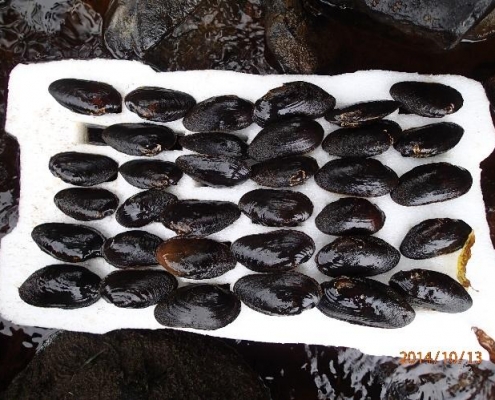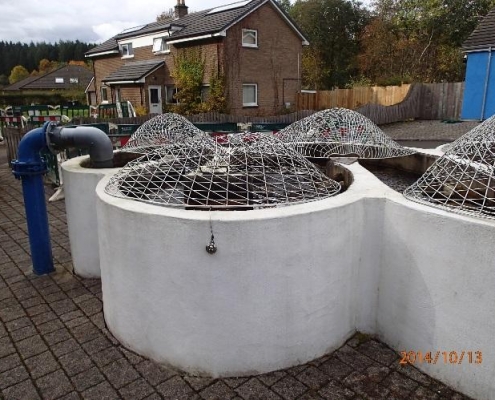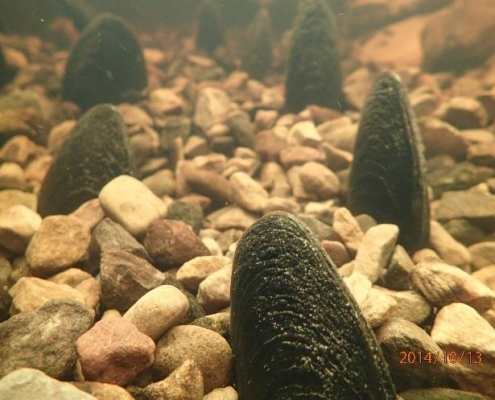Nature Conservation
Case Study – Freshwater Pearl Mussel Translocation
In October 2014 E3 Ecology translocated freshwater pearl mussels from a stretch of the River North Tyne at Warden, Northumberland, to the Kielder Salmon Centre.
There was a need to replace the sewer outfall into the River North Tyne at Warden, which was likely to impact upon the population of freshwater pearl mussels downstream of the proposed outfall location. Surveys were undertaken by E3 in 2012, 2013 and 2014 and between six and thirty freshwater pearl
mussels were recorded each year. The mussels were at low densities and at the most downstream extent of their population in this location. Prior to the
commencement of works a Natural England conservation licence was obtained by E3 to allow the collection of mussels from impacted area and translocation to the breeding beds at Kielder Salmon Centre.
Twenty-five fresh water pearl mussels were taken and transported in a bespoke container designed by E3 to Kielder. Once there they were placed into a manmade stream channel that has been purpose built for breeding pearl mussels and already contained a similar number of the species. Kielder Salmon Centre is the largest conservation hatchery in England and Wales and breeds up to 900,000 salmon per year.
Their freshwater pearl mussel breeding project allows the glochidia (larvae) that they produce to attach to the gills of young salmon, prior to release, and it is hoped that this will allow new populations to become established and existing populations to expand, increasing the regional population of the species.





